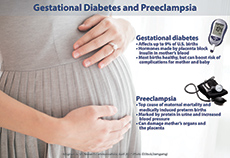Office of Research & Development |
 |

VA Research Currents archive
May 30, 2017
By Tristan Horrom
VA Research Communications

The PTSD Psychopharmacology Working Group says more research on the underlying biology of PTSD will spur the development of much-needed drugs to help treat the condition. (Photo: ©iStock/SolStock)
A group of VA researchers has forged a set of recommendations to address what they say is a "crisis" in the area of drug treatment for posttraumatic stress disorder. The recommendations appeared in a March 2017 issue of Biological Psychiatry.
The report is authored by the PTSD Psychopharmacology Working Group, convened by VA in June 2016 to evaluate the current status of drug treatment for PTSD, and the potential role of research in creating better options. The group is urging more research on the effectiveness of medications now being used to treat PTSD symptoms, more early-phase trials on new treatments, and the development of a more robust infrastructure to support the research that's needed.
Although PTSD is a priority for VA, there has been little recent advancement in drug treatment options. There are currently only two medications approved by the FDA for PTSD, sertraline (sold as Zoloft) and paroxetine (sold as Paxil). Both drugs work by the same chemical mechanism, and both only reduce symptoms rather than eliminate them. The FDA has not approved any new medications for PTSD since 2001, and new drug development has stalled. Research investments into PTSD drug research by VA and other federal agencies over the past decade have yet to bear fruit, according to the researchers. There have also not been many studies in this area sponsored by the pharmaceutical industry in recent years.
There are currently only two medications approved by the Food and Drug Administration to treat PTSD.
Due to the lack of medications approved for PTSD, doctors often use various other drugs to treat PTSD symptoms. This off-label medication use has not been sufficiently studied, say the authors of the new report, to clarify which applications are truly safe and effective.
In their paper, the working group points to what they call a serious "knowledge gap" regarding treatments being used in the field. In other words, evidence is lacking on how well these treatments actually work. The researchers say studying these off-label medications will require building more infrastructure for research, as well as encouraging collaboration between government, academia, and the pharmaceutical industry.

To accomplish this, the clinical trial workforce needs to be grown. The working group suggests training more clinician-scientists, along with biostatisticians and trialists, to conduct the research. The expanded research will also need to include more female Veterans so that the findings will be relevant to the largest possible population of Veterans.
In recent years, research into how the brain works has taken a leap forward. Scientists have learned more about how stress affects not only our emotions, but also our biology. According to the working group, "It is important to explore more novel treatments for PTSD based on a biological rationale in order to identify what new compounds hold promise."
As molecular and biochemical research advances, they write, researchers should apply the findings in the pursuit of new PTSD drug treatments. While neurobiology and genomic research continues to move forward, a concerted effort is needed to study how specifically PTSD affects the brain, says the working group.
All in all, the working group came to seven key conclusions:
1. Finding effective drug treatments for PTSD should be a national mental health priority.
2. There is a need for more early-phase clinical trials involving government, industry, and academia.
3. There is a need to develop new drug trial designs specific to PTSD.
4. Studies are needed on the effectiveness of treatments for PTSD.
5. Developing a clinical trials workforce and infrastructure for PTSD would help expand the number of clinical trials.
6. Studies exploring the biology underlying PTSD will help develop new drug treatments.
7. Investing in linking basic neuroscience with clinical studies will improve understanding of PTSD.
In light of the conclusions, VA recently announced a new initiative to spur innovative research into drugs that can be used to treat PTSD in Veterans, called the PTSD Psychopharmacology Initiative. The initiative calls for new research proposals from VA investigators, and also includes clinical trials training and other measures designed to expand research in this area.